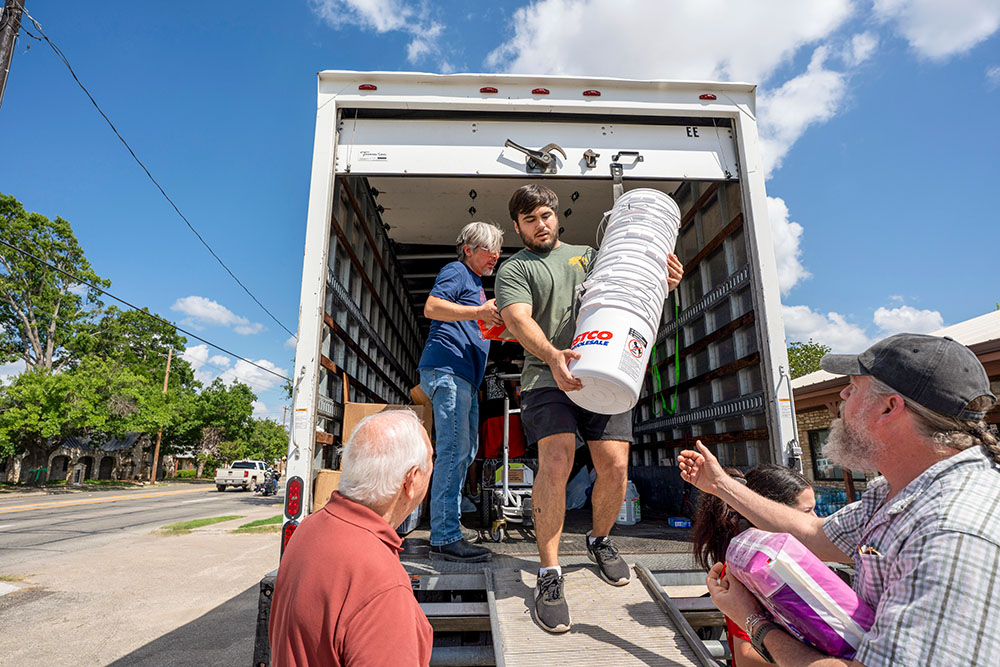
Ethan Clark, a parishioner and volunteer with the Notre Dame Parish relief distribution center in Kerrville, Texas, unloads buckets from a truck of donations that will be used to store the items for emergency cleanup kits. (GSR photo/Gregg Brekke)
Ten days after the July 4 Texas floods that have killed at least 132 people — with more than 100 still missing, officials say — Sr. Denise LaRock recognizes the desperate need in her community.
LaRock, a Daughter of Charity, is one of many working tirelessly to help Texas Hill Country residents struggling in the aftermath. With Catholic Charities, the San Antonio Archdiocese and local parishes, volunteers are both addressing basic needs — such as short-term housing, food assistance, cleanup materials, and water — while planning for the long-term recovery ahead.
LaRock leads the humanitarian relief program for Catholic Charities in the archdiocese, where she works primarily with homeless populations and those with food needs.
Now, she's been called upon to receive and manage calls on Catholic Charities' hotline where residents of Kerr County, the hardest-hit region, can call for help.
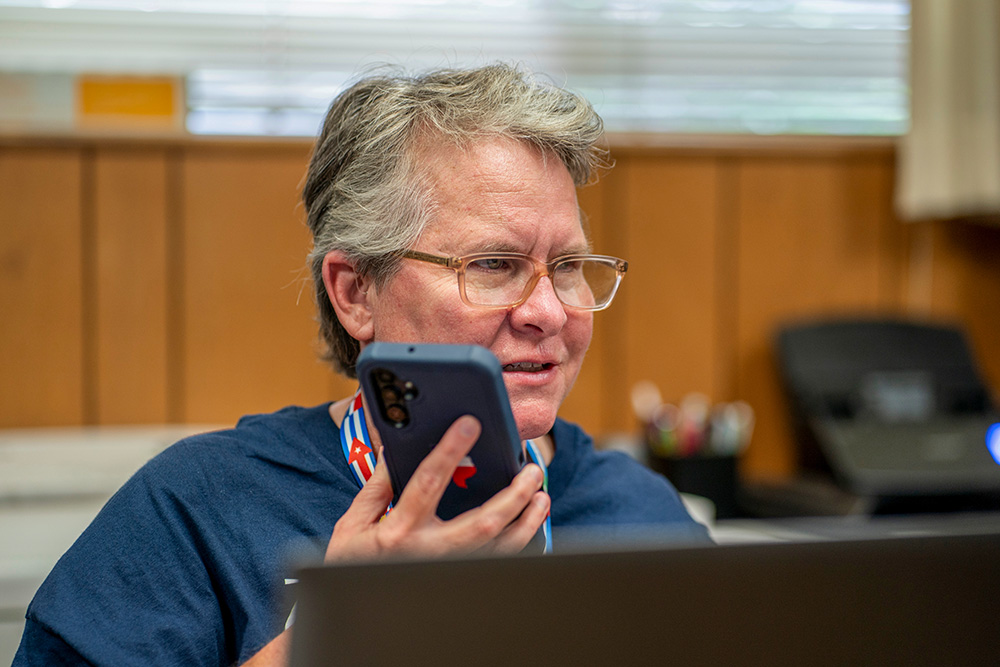
In Kerrville, Texas, the epicenter of the flash flooding and response effort, Daughter of Charity Sr. Denise LaRock processes aid requests received on the hotline phone of Catholic Charities of the San Antonio Archdiocese. (GSR photo/Gregg Brekke)
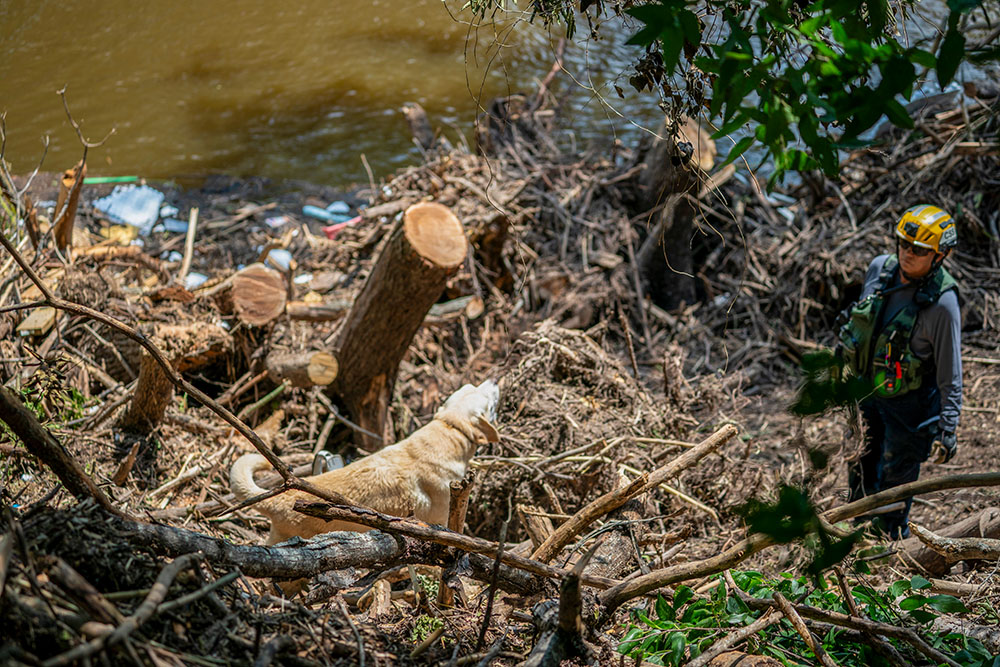
A human remains detection dog from Orange County, California, Search and Rescue barks to identify a body buried in debris along the banks of the Guadalupe River in Kerrville, Texas. (GSR photo/Gregg Brekke)
"A vast majority of the calls we have been getting are from people who want to donate [to the relief fund]," she said. "We're starting to get calls about funerals, so far eight of them. We'll be helping with funeral and transportation costs for those families."
On the ground, Notre Dame Catholic Church in Kerrville, Texas, will be housing a Catholic Charities liaison from the archdiocese who will help with case management for those in need and ensure there is material and financial coordination between various organizations.
"We will be doing intake to see what people need," LaRock said, listing food, clothes, rent assistance, utility assistance, funeral assistance, legal help to sort through property claims, emergency hotels, and AirBnB vouchers for temporary stays. "Then figuring out what the counseling needs are also."
Advertisement
Fr. Scott Janysek described in a homily how donations from around the nation have flowed into the parish for relief that will be distributed directly to those in need of housing, food and cleanup assistance. Following Sunday Mass on July 13, the Red Cross began setting up a temporary shelter in the church's school gymnasium where the parish and the Red Cross expect to house 10 families for up to 30 days.
The church also started a relief center in the immediate aftermath of the flooding at a property adjacent to their school. Truckloads of donated goods — including bottled water, food, clothing, diapers, and cleanup supplies — have flowed in for distribution. According to Gavin Hofferbert, donations coordinator for the church, an average of 100 people per day have arrived for the no-questions-asked relief materials distribution.
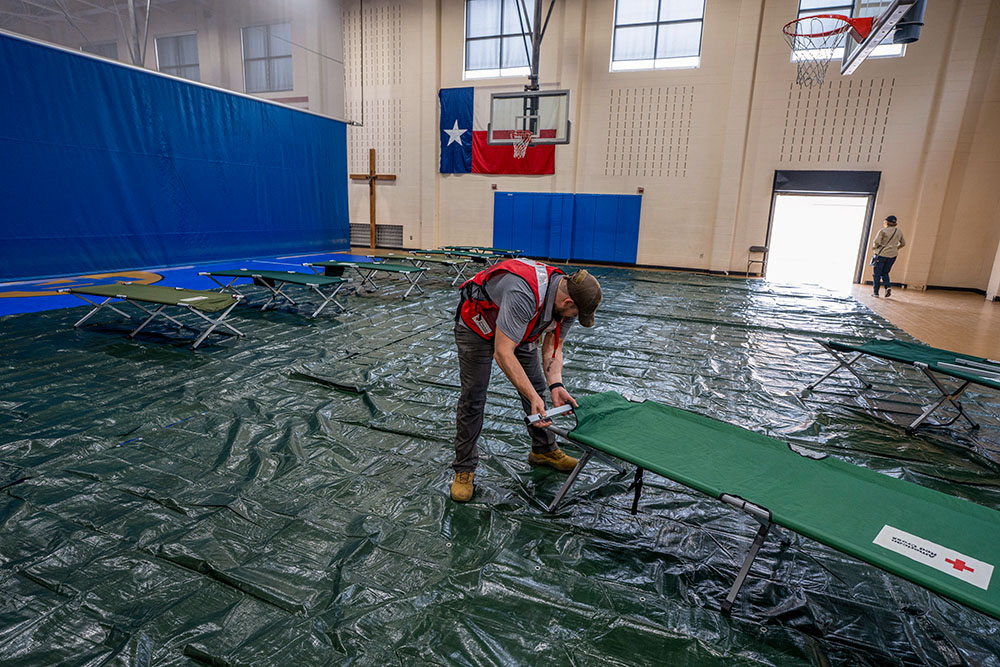
Randy Hughart, senior community disaster program manager for the American Red Cross of Central and South Texas, sets up cots in the Notre Dame Catholic School gym in Kerrville Texas. The Red Cross expects to house up to 10 families for at least a month in this location with one side of the gym providing sleeping space and the other side used for dining. (GSR photo/Gregg Brekke)
While many urgent needs are being met, LaRock and her colleagues are preparing for the long-term recovery that will include navigating the complexity of housing issues along with providing spiritual care and mental health counseling. The shock and grief many people are feeling, along with the desire of others to do whatever they can to help in the recovery effort, are occupying peoples' energies, she said.
When the emergency is over, however, LaRock recognizes that the work of restoration will continue for months, maybe even years, as roughly 38,000 homes were in the flooding zone, according to a Cotality analysis.
"I think people are still in busy mode," LaRock said. "But the long-term housing needs and getting back on their feet, like people who have lost the breadwinner of their family — what do they do now? There are deeper implications, rather than just the disaster itself, that will require re-sorting their whole life."
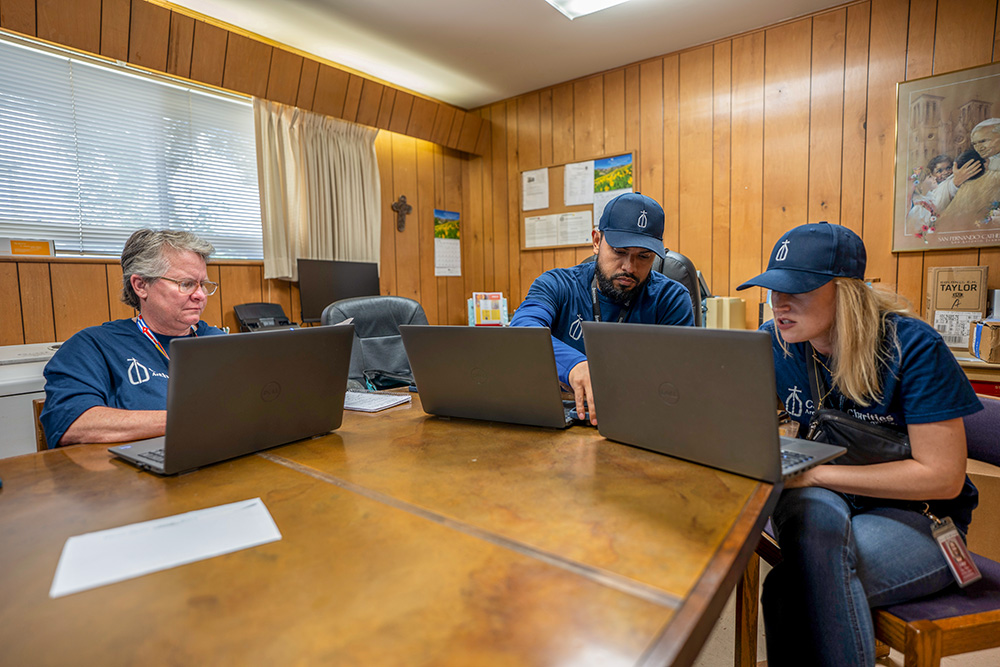
Daughter of Charity Sr. Denise LaRock works alongside Catholic Charities colleagues Omar Davila, senior director for family self-sufficiency, and Lizzy Perales, vice president of programs, in Kerrville, Texas, as they coordinate response efforts for victims of the July 4-5 flash flooding here. (GSR photo/Gregg Brekke)
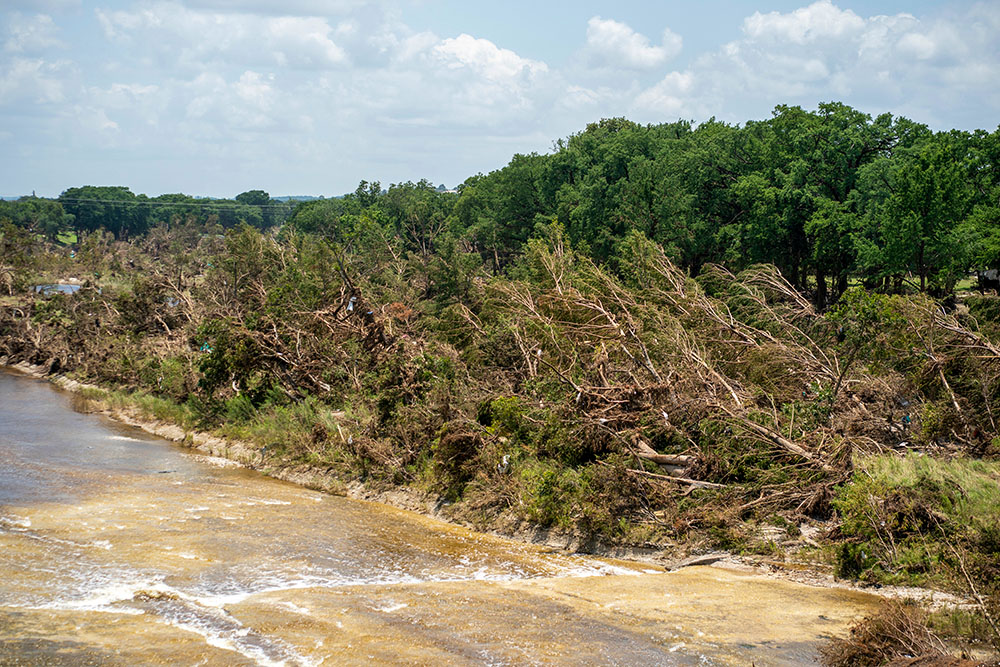
A grove of trees adjacent to a riverfront park and the Guadalupe River in Kerrville, Texas, was flattened during flash flooding July 4, 2025. Upstream debris litters the downed trees where search and rescue teams are just beginning to look for the remains of people washed away by the flood. (GSR photo/Gregg Brekke)
Despite the desperate situation of many people, LaRock finds hope in how the community has come together to support one another.
"Everyone is contributing in any way that they can, some looking for survivors, some looking for the deceased people, making financial donations, gift cards, making meals, helping clean places out, sorting clothes, although there's just such a variety of help and from so many organizations," she said of the multiple groups collaborating in the relief effort. "It's not about if I can do more than your group can do."
"The outpouring of compassion and generosity has just been amazing."
Catholic Charities in the San Antonio Archdiocese has established a Flood Crisis Response web page with resources for those seeking assistance and also includes a giving link.





